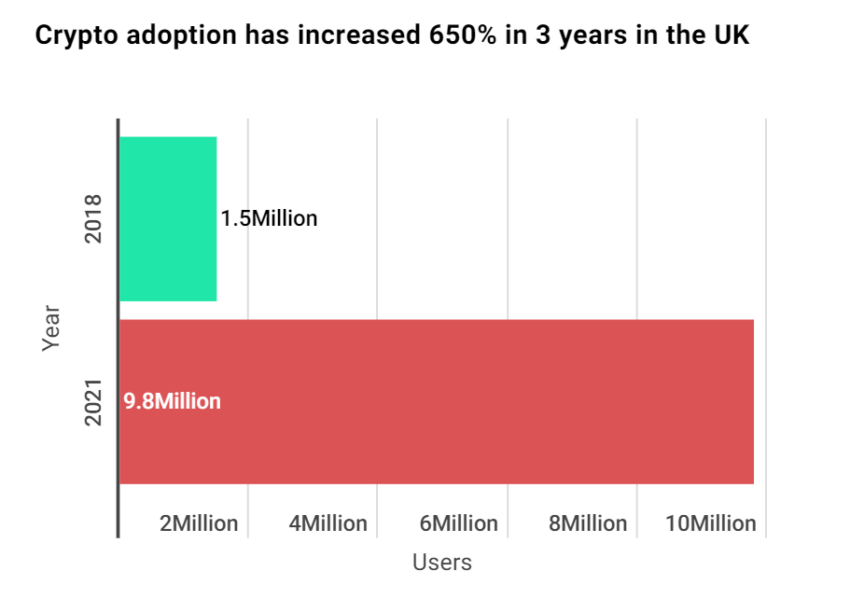It is one of the worst-performing economies in the G7. Its living standards have plummeted since the financial crisis, and its place at the top tier of economies looks increasingly insecure.
Could Web3 be a growth sector for the UK? The current prime minister used to think so. Earlier this year, then Finance Minister Rishi Sunak declared he wanted Britain to become “a global hub for crypto asset technology.”
Young, with a background in finance and top-class degrees from Oxford and Stanford, Sunak reeks of talent and ambition. With his deep pockets and tech billionaire in-laws, he also has an air of the tech bro about him too. Although calmer and less histrionic than Twitter’s Elon Musk.
However, Sunak’s crypto ambitions are not necessarily out of kilter with UK policy. The country is already a TradFi hub. At the beginning of this year, London was once again ranked as the world’s top global finance center. If you’re someone who believes DeFi and crypto can improve – or coexist – with old-school finance, pursuing the goal of making the UK a crypto hub makes complete sense.
“We want to see the businesses of tomorrow – and the jobs they create – here in the UK, and by regulating effectively, we can give them the confidence they need to think and invest long-term. This is part of our plan to ensure the UK financial services industry is always at the forefront of technology and innovation,” said Sunak in April.
The UK Is Pulling In Different Directions
Not everyone is on the same page. Particularly not the UK’s myriad of regulators.
Advertising crypto-based services and products in the UK can be notoriously difficult. The Advertising Standards, Authority (ASA) demands substantial caveats for any advertising campaign.
Two similar Crypto.com ad bans happened earlier this year. In one campaign, the company encouraged customers to “Buy Bitcoin with a credit card instantly.” In that case, the ASA ruled it was “misleading” and “took advantage of consumers’ inexperience or credulity.”
This week, the ASA issued a ruling banning a Facebook ad for Crypto.com NFT. The reason? It “failed to illustrate the risk of investing in NFTs” and “didn’t make clear that fees would apply.” Without getting too into the weeds, what condemned Crypto.com was the use of the word “trade,” which the ASA used to infer that NFTs – in this case – was an investment product. Therefore, subject to an extra tranche of advertising rules.

You can make a very good case that volatile assets like crypto and NFTs need harsher rules. (Incidentally, it is also an argument the author agrees with.) However, NFTs are unregulated by the Financial Conduct Authority (FCA), so their interpretation is largely in the hands of other regulators. In this case, the ASA. This brings us to another problem.
As we reported recently, the incoming chair of the FCA has some pretty hardline views on the value of crypto assets. Ashley Adler has referred to the industry as “deliberately evasive” a complicit in large-scale money laundering. When he takes over early next year, it is likely we will get a lot more clarity on things like NFTs and crypto tokens. However, his interpretation of primary legislation is unlikely to be positive for the industry.
Rishi Sunak Is Likely To Roll Back His Ambitions
Despite the earlier optimism, the UK’s pro-crypto prime minister is unlikely to keep to his grand ambitions. For starters, his party is 22 points behind in the polls. The opposition Labour Party, out of government for 12 years, is at 47%, having recently achieved the highest poll lead against Sunak’s Conservatives since 1997. An ill omen, considering Labour later won in a historic landslide that year. Put simply; things have not looked this bad for a sitting British prime minister in over two decades.
The word of the day is caution. When Sunak outlined his plans in April, we were at the tail end of a crypto bull market. The industry had yet to see the Celcius, Terra/Luna, and FTX scandals. We were on something of a high, and crypto was an easy craze to jump on, especially for an ambitious, forward-looking Finance Secretary. Sunak is now prime minister, and a lot has changed since.

To make things worse, if the Labour Party enters government, crypto is unlikely to get a friendly hearing. In a parliamentary debate in September, Labour Party Treasury spokeswoman Abena Oppong-Asare spoke for many when she said she questioned: “whether crypto has a future at all.”
There is also little political benefit from embracing cryptocurrencies. In February, a survey revealed approximately half of Brits wouldn’t use the technology. A number that has likely plummeted since the rolling scandals of 2022.
It’s Not All Bad For UK Crypto
However, there are spots of brightness on the horizon. Sir Jon Cunliffe, the Deputy Governor of the Bank of England, said he believed there was a “real benefit for the UK in terms of the technology.” However, he stopped short of a full-throated endorsement of the sector. Criticizing so-called shitcoins primarily used for speculation. “Crypto assets that have nothing behind them… I don’t think there’s ever going to be a sustainable financial activity around that.”
There are also still crypto advocates in Parliament. Lisa Cameron, an MP for the Scottish National Party, is one example. Speaking to Financial News London in September, she said that although she is “not an evangelist… As time has gone on, I have realized there are opportunities in terms of innovation and job creation. You can’t keep your head in the sand and hope it goes away.”
Cameron is also head of the Crypto and Digital Assets All-Party Parliamentary Group. A voluntary association that looks at how government can interact with and legislate the sector.
The UK’s wide-ranging Financial Services and Markets Bill (FSMB) is expected to be passed by next spring. The law is expected to give regulators substantial powers over the crypto industry. Its final form will give observers a good guess at whether the UK will be a crypto hub or snub.
Trusted
Disclaimer
Following the Trust Project guidelines, this feature article presents opinions and perspectives from industry experts or individuals. BeInCrypto is dedicated to transparent reporting, but the views expressed in this article do not necessarily reflect those of BeInCrypto or its staff. Readers should verify information independently and consult with a professional before making decisions based on this content. Please note that our Terms and Conditions, Privacy Policy, and Disclaimers have been updated.


